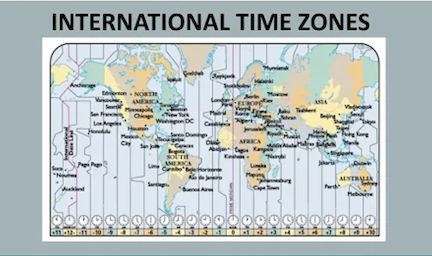Strike Takes a Bite Out of Hostess Twinkie
An iconic brand is closing its doors:
A small union's stubbornness in contract talks with Hostess is being blamed for the shutdown of one of America's snack food icons, the loss of 18,500 jobs just before the holiday season and much-needed tax revenue from hundreds of plants and shops across the country.
The privately-held company had reached a deal with the Teamsters, but a smaller union representing bakery workers refused to agree to concessions, prompting the mass layoffs and closing down of hundreds of plants, bakeries and delivery routes. That prompted harsh words from both the company and from Teamsters officials.
"We deeply regret the necessity of today's decision, but we do not have the financial resources to weather an extended nationwide strike," Chief Executive Gregory Rayburn said in a statement. "Hostess Brands will move promptly to lay off most of its 18,500-member workforce and focus on selling its assets to the highest bidders."
There may be a fine line between standing on principle and selfish stubbornness. The courts and history will have to decide whether that line was crossed in the instance of Hostess snack foods. Nevertheless, digging in one's heels can often be a lose-lose proposition that may even come back to take a bite out of your Twinkie.
"Let each of you look not only to his own interests, but also to the interests of others" (Philippians 2:4).
Illustration Exchange
America's Longest Married Couple
Most people don’t even live as long as these two have been “giving and taking.” While compromise may not be the sole criteria for a happy marriage, it's clearly a biblical key to ALL healthy relationships as we learn to “prefer one another in love “(Romans 12:10).
God's Time Zone
For ages, people used the sun to determine what time it was where they were. Every community set its clocks to noon based on when the sun reached its highest position in the sky; as a result, when it was noon in Washington, D.C., the local time in New York City was already minutes ahead. Before the days of long-distance travel, differences in local times weren’t a big deal. That changed with the rise of railroads in the 1800s. Although it was now possible to travel significant distances faster than ever before, a multitude of local times, particularly in large countries such as the United States, made things confusing when it came to train schedules.
On November 18, 1883, America’s railroads began using a standard time system involving four time zones: Eastern, Central, Mountain, and Pacific. Within each zone, all clocks were synchronized. The railroad industry’s plan was adopted by much of the country, although the time-zone system didn’t become official across the United States until the passage of the 1918 Standard Time Act, which also established daylight saving time. By the mid-20th century, most of the world had adopted a system of international time zones, in which the planet is divided into 24 zones spaced at intervals of approximately 15 degrees of longitude. In 1884, delegates from more than two dozen nations met at the International Meridian Conference, held in Washington, D.C., where they chose the line of longitude running through the Royal Observatory in Greenwich, England, as the official prime meridian, or zero point of longitude.
Today, Russia, the world’s largest nation in terms of land mass, has 11 time zones.
But China, the fourth-largest by area, has just 1 time zone! Before 1949, China had five time zones. After the rise of communism, the government required the entire country to operate on China Standard Time for the sake of national unity.

The Ancient Greek word kairos (καιρός) means "the right time" or "opportune moment" (as opposed to chronos (Χρόνος) which means actual "time" and refers to a quantitative or exact measurement of time). It's used to describe a special moment when it's the best "time" to say or do something.
Many years before the Greek NT was composed, the writer of Ecclesiastes tried to help humanity with achieving a unity of timeliness which the Chinese government will never achieve through a mandated, nationwide time zone. Ecclesiastes 3:1-11 offers us the opportunity, as God’s children, to have a unified perspective of kairos (καιρός) — time.
3:1 There is a time for everything,
and a season for every activity under the heavens:2 a time to be born and a time to die,
a time to plant and a time to uproot,
3 a time to kill and a time to heal,
a time to tear down and a time to build,
4 a time to weep and a time to laugh,
a time to mourn and a time to dance,
5 a time to scatter stones and a time to gather them,
a time to embrace and a time to refrain from embracing,
6 a time to search and a time to give up,
a time to keep and a time to throw away,
7 a time to tear and a time to mend,
a time to be silent and a time to speak,
8 a time to love and a time to hate,
a time for war and a time for peace.9 What do workers gain from their toil? 10 I have seen the burden God has laid on the human race. 11 He has made everything beautiful in its time. He has also set eternity in the human heart; yet no one can fathom what God has done from beginning to end.
ALTERNATE APPLICATION: In the end, it isn't so much about how you render time, but how you use it.
"Making the best use of the time, because the days are evil" (Ephesians 5:16, ESV).
"Walk in wisdom toward outsiders, making the best use of the time" (Colassians 4:5, ESV).